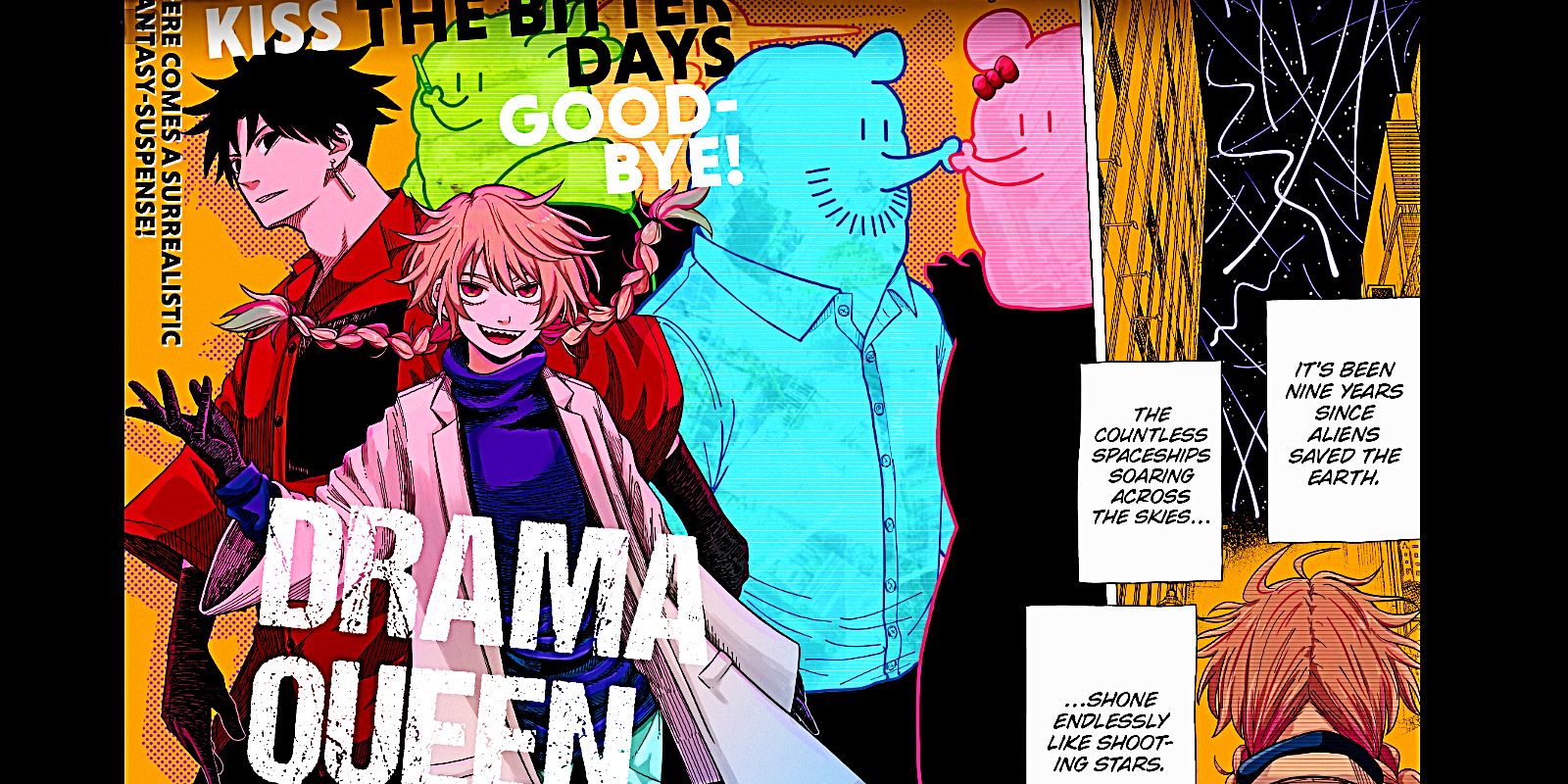
Shonen Jumpthe hottest new manga from, Drama Queenbecame the talk of the online community again after the English version of its first chapter was changed to allegedly censor one of its jokes. After debuting in early December 2024, Kuraku Ichikawa Drama Queen immediately captured and polarized the attention of manga fans around the world due to accusations of racism and xenophobia in its story.
After the debate seemed to have ceased, Drama Queen became a hot topic again this week when fans realized that a panel in the English version of the first chapter was changed apparently censoring a joke made by the protagonist, as this could have angered the LGBTQ+ community.
Drama queen's censorship sparks debate over translations and fan pressure
A Japanese word was misinterpreted
The story, reconstructed by @MangaMoguraRE and other X users, is as follows. In chapter #1 of Drama Queenthe protagonist, Nomamoto, is talking to herself, complaining about the aliens who moved to Earth after (apparently) saving the planet from a meteorite. She compares them to other things she doesn't like, including "women who call their boyfriend 'partner'". At the time of publication, this line was considered by some to be a jab at LGBTQ+ people who use the gender-neutral term "partner", "相方" in Japanese.
A few days later, fans noticed that the English translation had been changed, with Nomamoto's line now saying, "I hate women who use nicknames for their boyfriends." Since there would be no other reason to change this specific line, manga fans assumed the change was a result of pressure from online critics, therefore making it a case of censorship.
However, as Mogura and other Japanese speakers have pointed out, the word "相方" in Japanese does not have the same meaning as in English and has nothing to do with inclusive language. Instead, it is a way that some younger Japanese people use to refer to their partner in a relationship, without using equivalent words for boyfriend or girlfriend, to make it seem more casual.
This could mean that the translation was not “censored” but rather altered to better reflect the original intent. Of course, avoiding a potentially offensive meaning could also have played a role, and this is an action that many people could define as censorship. The interesting thing is that no other parts of the manga were touched.
Western fans aren't ready for the drama queen
Censorship in manga and any other form of literature or art is a serious problem, especially when there appears to be no solid reason behind it, like in this case. Regardless of the motivation behind the change made, the misinterpretation of the joke by a segment of manga readers outside of Japan could be taken as further confirmation that some Western fans still do not understand the manga. They are forcing their cultural perspective on something that is still a product of Japanese culture, which can cause misinterpretations and, in the worst cases, even censorship.
Older fans will remember when ramen was changed to spaghetti in early anime localizations like Sailor Moon. While these changes were more ridiculous than harmful, Drama QueenThe case of is a clear reminder of the risks that every translation or adaptation entails. While the global success of manga and anime might give the idea that this is a truly international art form, this is not the case. These are still products of Japanese culture, and Western fans would do well to remember that.
Drama Queen will certainly continue to make headlines due to its provocative story of a pair of outcasts fighting (and eating) aliens that many readers were quick to compare to immigrants. As there is still no official statement regarding the altered translation, the accusation of censorship remains for now.
